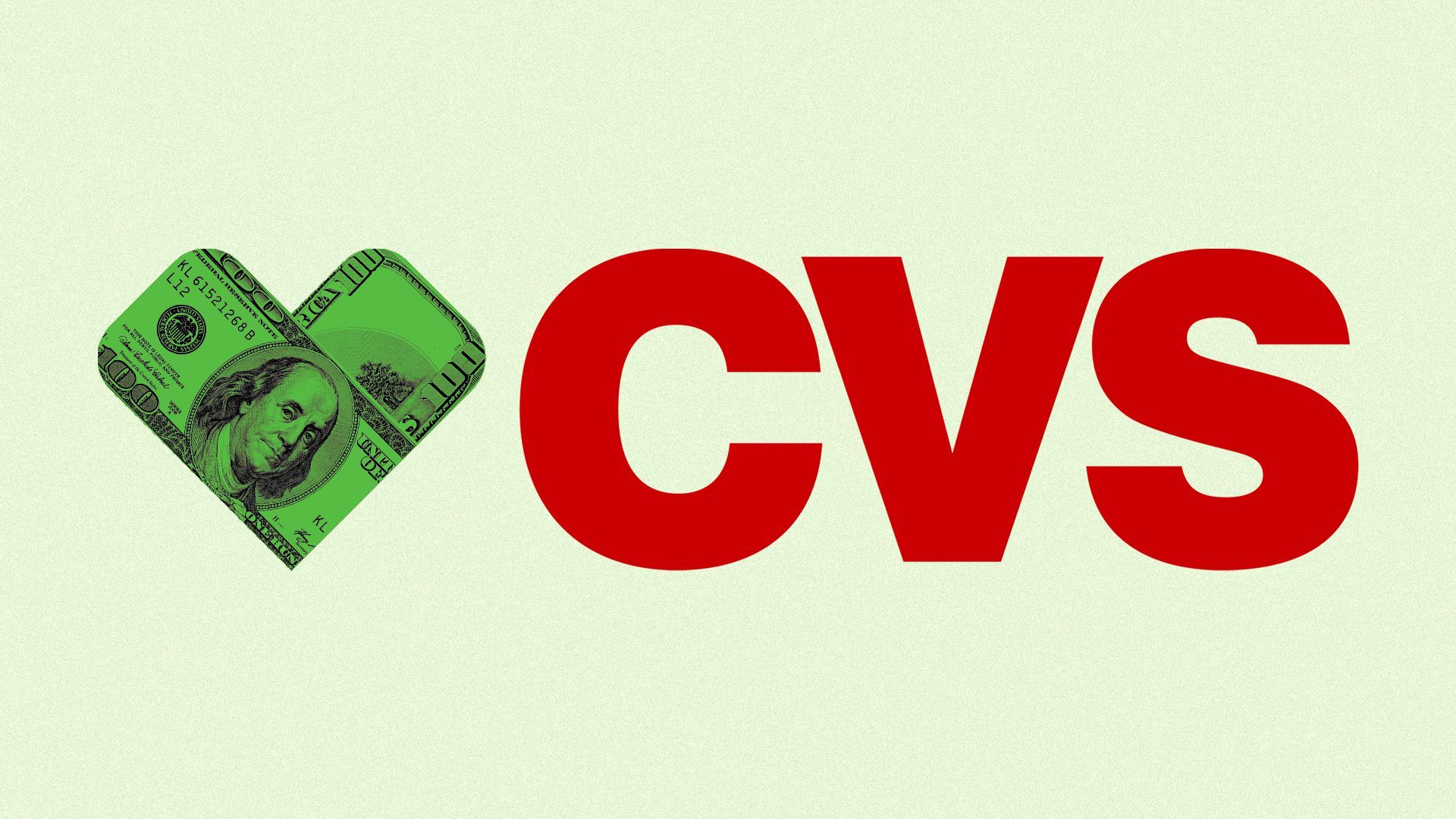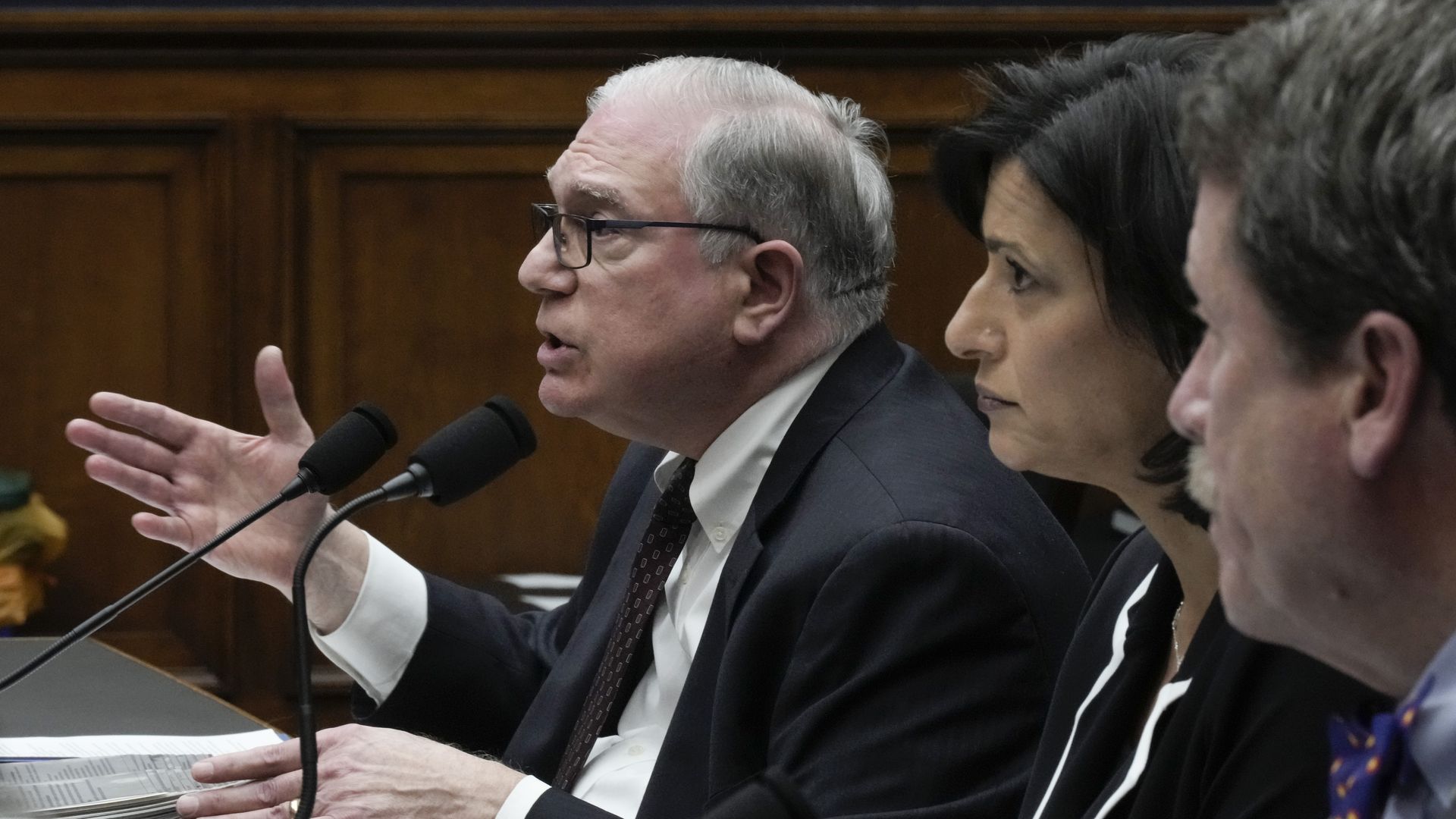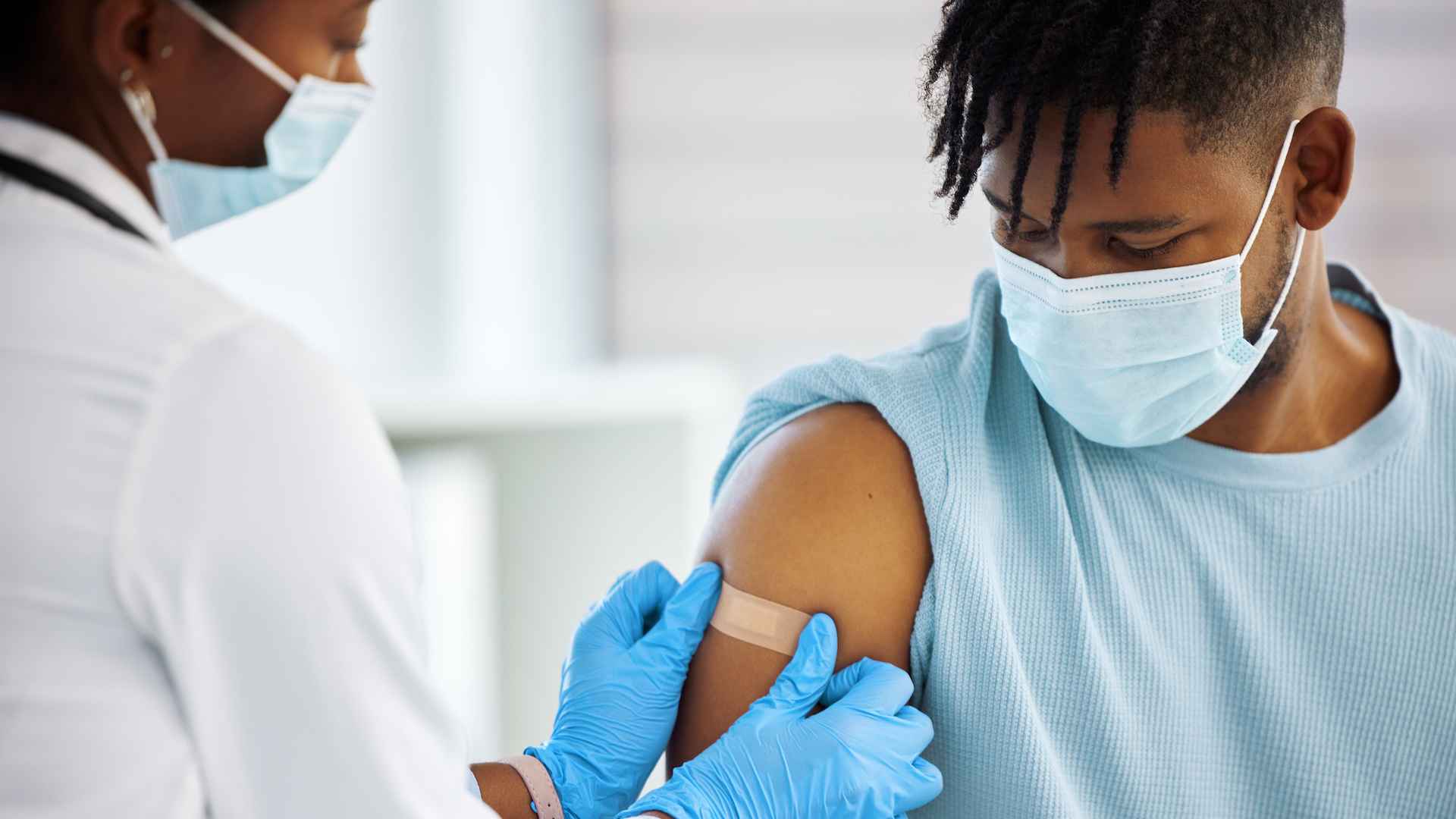| |
| |
| |
| Presented By the Healthcare Distribution Alliance (HDA) |
| |
| Axios Vitals |
| By Tina Reed · Feb 09, 2023 |
| Good morning, Vitals readers. Today's newsletter is 915 words or a 3½-minute read. Situational awareness: President Biden is traveling to Tampa, Florida, today to take on the road his State of the Union message about lowering health costs and strengthening Medicare and Social Security. |
| |
| |
| 1 big thing: CVS bets big on primary care, Medicare |
 |
|
| Illustration: Shoshana Gordon/Axios |
| |
| CVS Health's planned $10.6 billion purchase of Oak Street Health is the latest installment of a buying spree that's seen the pharmacy giant go deeper into delivering primary care — especially for seniors. Why it matters: Absorbing a network of primary care centers focused on caring for Medicare patients helps CVS vie with other major retail and insurance giants that have been gobbling up providers. "It's an arms race, in some ways," Whit Mayo, a senior managing director for SVB Securities, told Axios. - "Everyone seemingly has to assemble an accelerating strategy around value-based care," he said.
- As we've previously written, value-based payments have been slow to gain traction, in part because powerful incumbent providers have significant leverage negotiating reimbursement with health plans.
- The exception may be in Medicare markets, where investors are flocking and the government is overhauling payment models to pay providers based on outcomes rather than the volume of services they perform.
The big picture: In addition to being a pharmacy behemoth, CVS is also a payer (it owns Aetna), a pharmacy benefit manager, an urgent care provider and a provider of disease management and home infusion services. - Oak Street would add around 600 providers serving around 159,000 patients in value-based agreements in 169 locations and 21 states.
What they're saying: "The acquisition of Oak Street Health will broaden our value-based care platform into primary care and accelerate our long-term growth," CVS Health CEO Karen Lynch said Wednesday during a quarterly earnings call. Between the lines: This particular move, along with CVS' investment in Signify, is a bet on the continued growth of their Medicare Advantage business. - But several analysts flagged headwinds in the Medicare Advantage market such as government clawbacks of past overpayments and lower-than-expected proposed rate increases for next year.
What to watch: Whether the Federal Trade Commission will allow the deal or nix it over antitrust concerns. - Owen Tripp, CEO of Included Health, which delivers virtual primary care, suggests watching the response from traditional payers and future primary care deals and partnerships targeting commercially-insured patients.
- "The majority of the way that people consume care in this country is through employer-sponsored benefits and none of these organizations, CVS, Walgreens, Amazon ... have actually come up with that answer yet. I think you'll see more of those answers coming in the next 12 months."
Read the rest. |
    |
| |
| |
| 2. Most providers still using emergency waivers |
 |
|
| Illustration: Natalie Peeples/Axios |
| |
| More than two-thirds of health care providers are still using pandemic waivers and flexibilities that are due to expire when the COVID public health emergency ends in May, according to an analysis by the group purchasing organization Premier, Axios' Adriel Bettelheim reports. Why it matters: The health care system will undergo a major shift as hospitals, health systems and other providers lose special allowances on reporting requirements, patients' rights, virtual care and a host of other areas. What they found: 69% of providers Premier canvased are currently leveraging waivers or flexibilities granted by the CMS under the public health emergency. - 80% said they already have a plan in place to unwind the waivers.
- But slightly more than half said they need more time to revert back to pre-COVID operations.
What we're watching: If Congress responds in the coming weeks with targeted measures to keep the status quo or if the federal health department uses its own authority to extend some flexibilities. |
    |
| |
| |
| 3. Bird flu outbreak in mink concerns experts |
| As bird flu spreads between animals, experts are calling for heightened surveillance, particularly of mink farms, according to news reports. Driving the news: An outbreak of H5N1 influenza began at a Spanish mink farm last month, STAT reports. Why it matters: That's concerning because minks are closely related to ferrets, which are often used as a proxy for people in the study of flu viruses, per STAT. - And while experts stress the risk to humans remains low, their concern with recent reports of the spillover of the disease to a number of different mammals — including bears, sea lions, otters and foxes — is the disease will next jump and spread in people.
- "Should we freak out about this? No," Chrissy Eckstrand, a veterinary pathologist at the College of Veterinary Medicine at Washington State University, told the New York Times. "But should we stay vigilant and prepared? I think absolutely we should."
The bottom line: WHO director-general Tedros Adhanom Ghebreyesus pointed out Wednesday that since the emergence of H5N1 in 1996, there has only been rare non-sustained transmission among humans, according to Politico. - "But we cannot assume that will remain the case and we must prepare for any change in the status quo," he said.
|
    |
| |
| |
| A message from the Healthcare Distribution Alliance (HDA) |
| Making the pharmaceutical supply chain more resilient |
| |
 |
| |
| A more resilient supply chain requires enhanced collaboration between the public and private sector. What you need to know: Healthcare distributors have been working with supply chain and government partners to build on our collective strengths and identify ways to enhance resilience. Read more. |
| |
| |
| 4. Quote du jour: GOP grills health officials |
 |
|
| Lawrence Tabak. Photo: Drew Angerer/Getty Images |
| |
| "There is no funding of [enhanced potential pandemic pathogens] research in any foreign country today that is sponsored by NIH." — Lawrence Tabak, the senior official performing the duties of the NIH director, testified in response to questions about gain-of-function research by Rep. Buddy Carter, R-Ga., during a hearing Wednesday. |
    |
| |
| |
| 5. Catch up quick |
| 👀 California Gov. Gavin Newsome's national political ambitions hinge on how he handles the homelessness crisis. (KHN) 💻 Health care bias is dangerous. But so are "fairness" algorithms. (Wired) 🏈 How the NFL avoids paying disabled players — with the union's help. (Washington Post) |
    |
| |
| |
| A message from the Healthcare Distribution Alliance (HDA) |
| Transitioning to COVID-19 vaccine commercialization |
| |
 |
| |
| The federal government has primarily coordinated COVID-19 response efforts with help from the private sector. Looking ahead: This responsibility is expected to transition to the commercial market. Learn the key role healthcare distributors will play. |
| |
| Did someone forward this email? Subscribe here. Thanks for reading, and thanks to senior editor Adriel Bettelheim and senior copy editor Bryan McBournie for the edits. |
 | | Your personal policy analyst is here. | | |








No comments:
Post a Comment